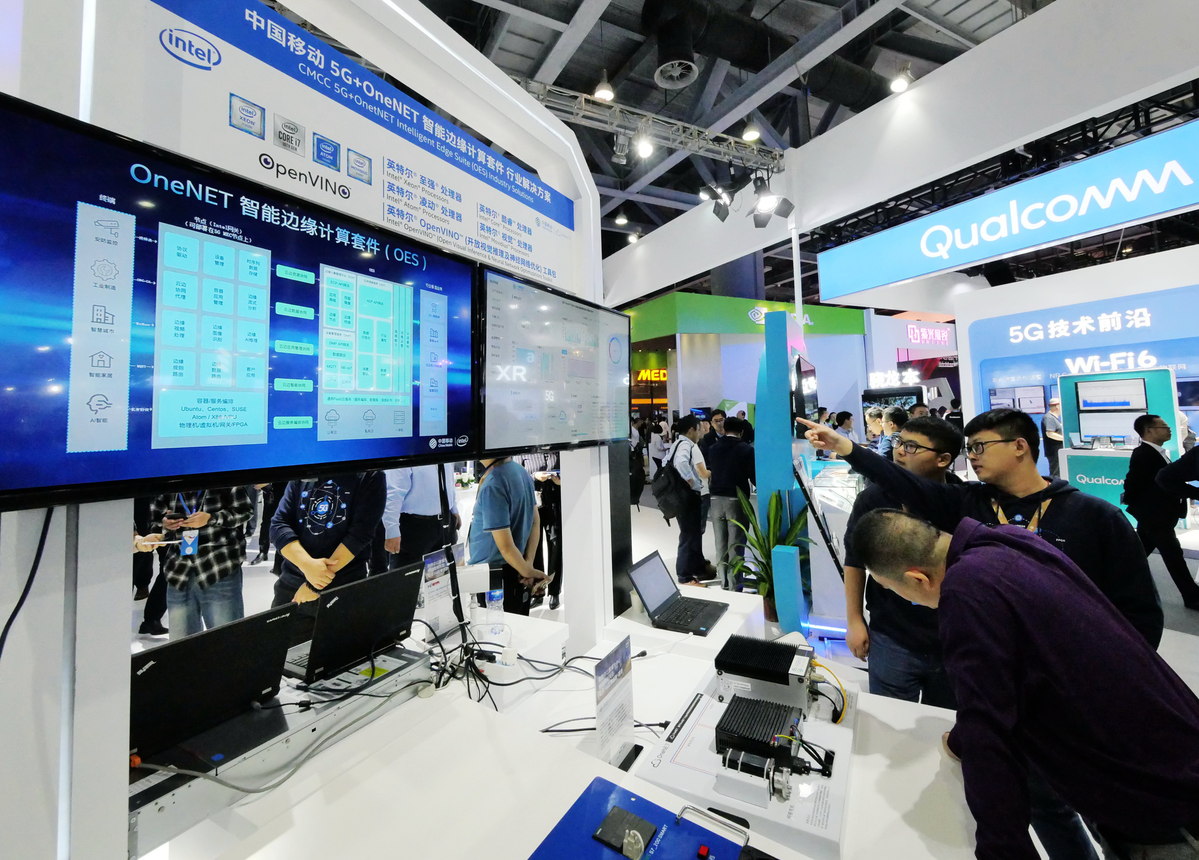Foreign firms eyeing new 5G opportunities


Infrastructure construction program part of China's broader push to boost economic growth, lay sound digital base
Foreign tech companies are striving to tap into China's efforts to accelerate construction of new infrastructure including cloud computing, 5G and artificial intelligence as they continue seeing robust local demand for their cutting-edge products and services.
Mark Gibbs, president of SAP China, said the new infrastructure initiative "reflects China's long-term view and willingness to invest ahead of the curve. The influence is transcending way beyond the borders".
"Compared with traditional infrastructure investment, the new infrastructure program has a strong technology focus. For instance, 5G will revolutionize the way business and people interconnect around the world," Gibbs said, adding that the company will align its strategies to the initiative.
Currently, the German software and cloud services provider is already seeing growing local demand for its cloud computing services amid the COVID-19 pandemic. In the first quarter, SAP inked a deal with Anta, a leading Chinese sportswear company, which was broadcast live on SAP S/4HANA, a next-generation, intelligent enterprise resource planning business suite designed specifically for in-memory computing.
"In challenging times, technology needs to be viewed as a business enabler to improve agility and responsiveness. Successful companies of tomorrow would be the ones that have invested and will keep investing in technologies to stay agile," Gibbs said.
His comments came after China underlined the importance of building new infrastructure as part of the nation's broader push to boost economic growth and lay down a sound digital base for industrial upgrade.
The concept of new infrastructure has also for the first time been included in China's Government Work Report for 2020, which vowed to develop next-generation information networks and expand 5G applications, build more charging facilities, promote wider use of new-energy automobiles, stimulate new consumer demand and promote industrial upgrading.
Wu Hao, director of the Department of High-Tech Industry at the National Development and Reform Commission, said in an earlier interview that unlike traditional infrastructure such as railways, highways and airports, the new type of infrastructure projects include new infrastructure for digital transformation, intelligent upgrades and innovative development.
"Led by new development concepts, the new infrastructure is driven by technological innovation and is based on information networks to meet the needs of high-quality development," Wu said.
Xiang Ligang, director-general of the Information Consumption Alliance, a telecom industry advocacy, said new infrastructure will bring opportunities not just for domestic companies, but also for foreign tech enterprises which have long-term development plans in China.
Yang Xu, president of Intel China, said the country's emphasis on new infrastructure will help the nation better upgrade its industries from large-scale manufacturing to value-added services.
"Intel has a steadfast, long-term strategy in China. We will travel together (with Chinese partners) and travel far," Yang said.
He said the company's chip plants in Dalian, Liaoning province, and Chengdu, Sichuan province, have been working nonstop amid the outbreak.
"In addition to technological innovation and application innovation, industrial cooperation and industrial synergy are needed to better build the new infrastructure," Yang added.
Alain Crozier, chairman and CEO of Microsoft China, said the COVID-19 outbreak has affected the company's planning and strategy to a certain extent, but it still maintains confidence in the Chinese market in 2020.
The urgent demand for remote working solutions during the outbreak has caused many enterprises and organizations to take notice of Microsoft Teams, which is a key element of Microsoft 365, an integrated personal and organization productivity solution offered by Microsoft, Crozier said.
"During the outbreak, we saw so many great examples of schools continuing their classes during quarantine using technology, doctors helping patients via video conferencing and companies continuing to operate with employees working from home in China using our technology," Crozier added.
"Obviously, China is leading the modern workplace evolution, and it also provides a valuable reference for companies in other countries and regions fighting the pandemic," he said.




































